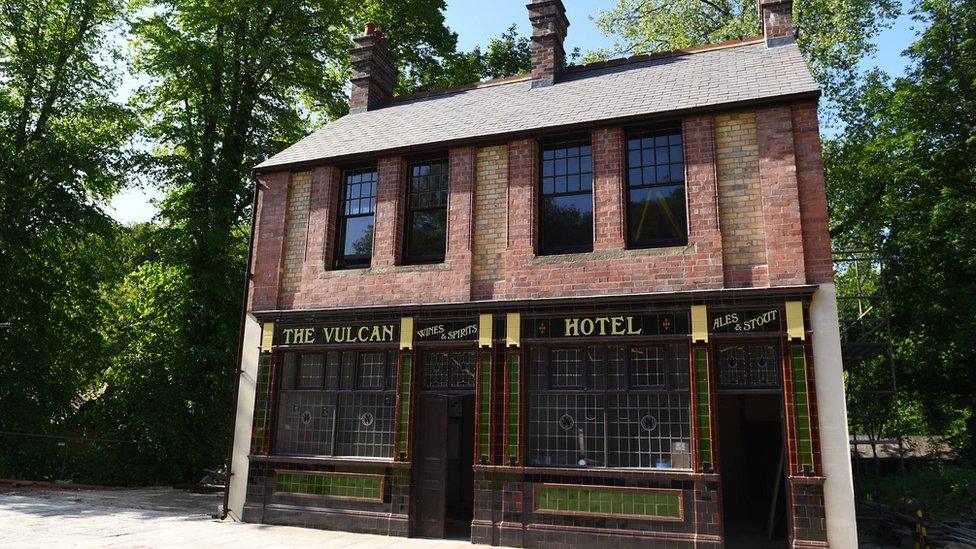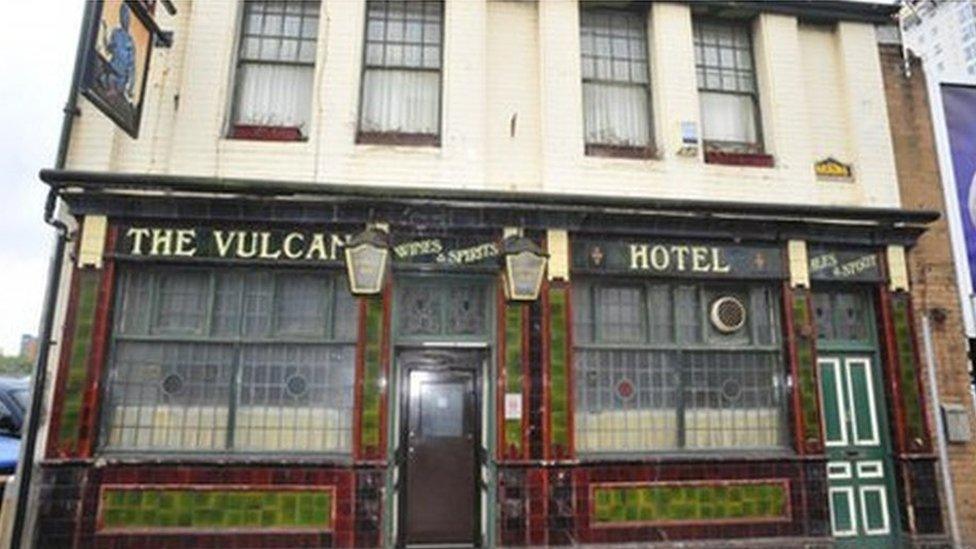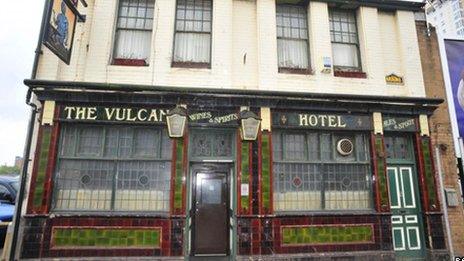St Fagans: Reopening date set for Cardiff Vulcan pub
- Published

The Vulcan Hotel has been lovingly recreated
Historic Cardiff pub The Vulcan Hotel is set to reopen to customers next month.
Built in the city's Adamsdown area in 1853, brewers SA Brain called 'last orders' in 2009 having described it as no longer commercially viable.
Scheduled for demolition, huge public outcry eventually saw the venue relocated brick by brick to St Fagans National Museum of History in 2012.
There it will welcome its first customers in over a decade on 11 May.
Located on Adam Street in what was then known as Newtown, The Vulcan was mainly a haunt of the local Irish community.
During its long history it saw major changes as Cardiff grew to become an industrial powerhouse and then the nation's capital.
Following the campaign to save it from the wrecking ball, the owners of The Vulcan Hotel formally offered the building to Amgueddfa Cymru - Museum Wales.
Then began the painstaking job of dismantling it ahead of its move to St Fagans' 100-acre site, where 40 plus old buildings have already been re-erected to showcase how people have lived, worked and spent their leisure time throughout the ages.
The Vulcan has been made to look as it did in 1915, an important year for the pub.

This is how the Vulcan Hotel used to look
At that time it had just undergone a major refurbishment that saw its distinctive green and brown tiles added to the frontage, as well as a redesign of its interior.
When it opens to the public The Vulcan will serve exclusive beer brewed by Glamorgan Brewing Co. and visitors can now pre-book a table there ahead of the big day .
Bethan Lewis, head of museum at St Fagans National Museum of History said: "We are very excited to open The Vulcan Hotel in May 2024.
"We know how much people have been looking forward to seeing The Vulcan open at St Fagans and it will be a great addition to our collection of historic buildings."

TREE ON A HILL: In the blink of an eye, Margaret and Clive are on the wrong side of the law
MICHAEL SHEEN'S DIRECTORIAL DEBUT: An ordinary family caught up in extraordinary events

- Published5 July 2020

- Published4 May 2012
